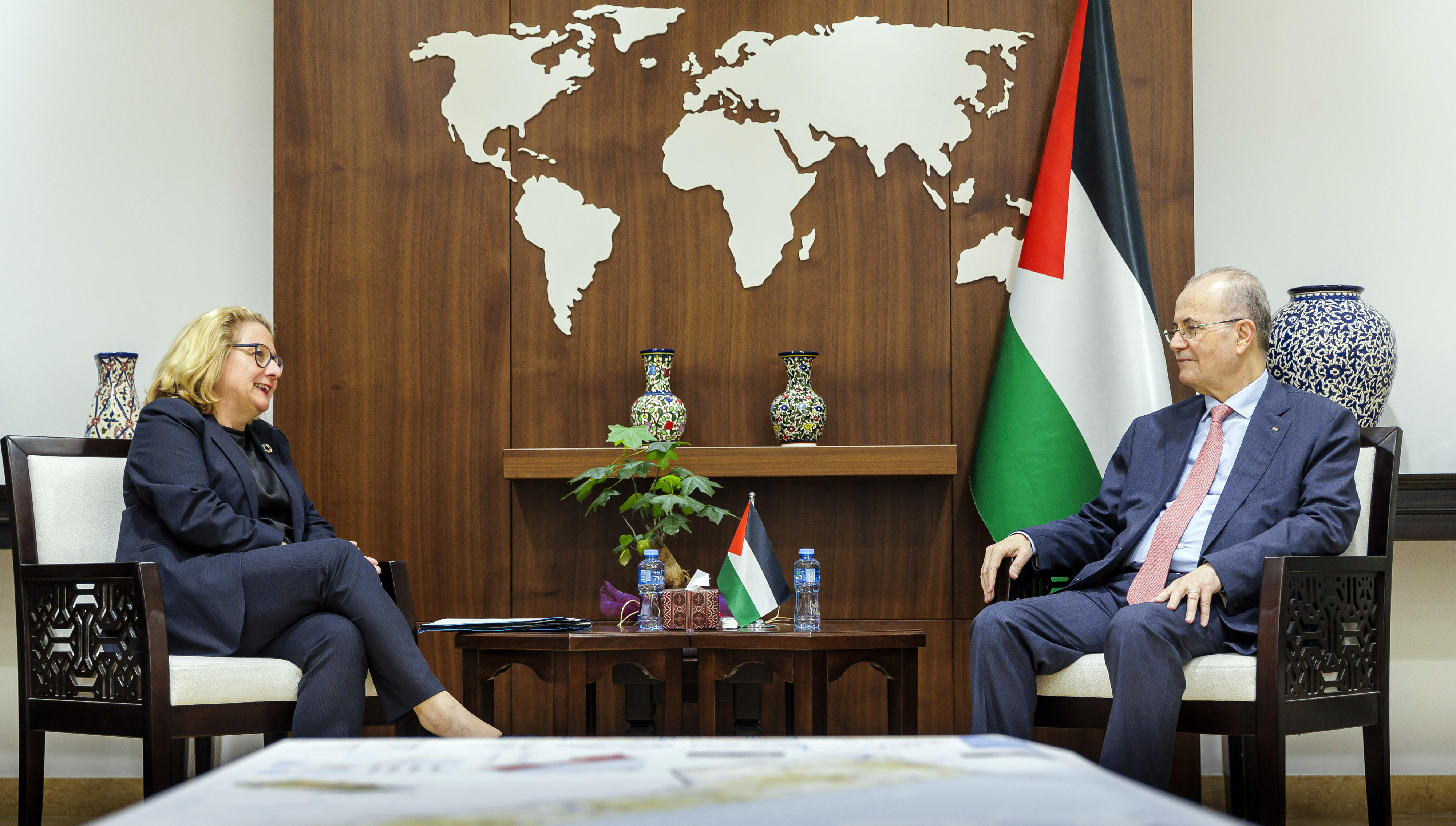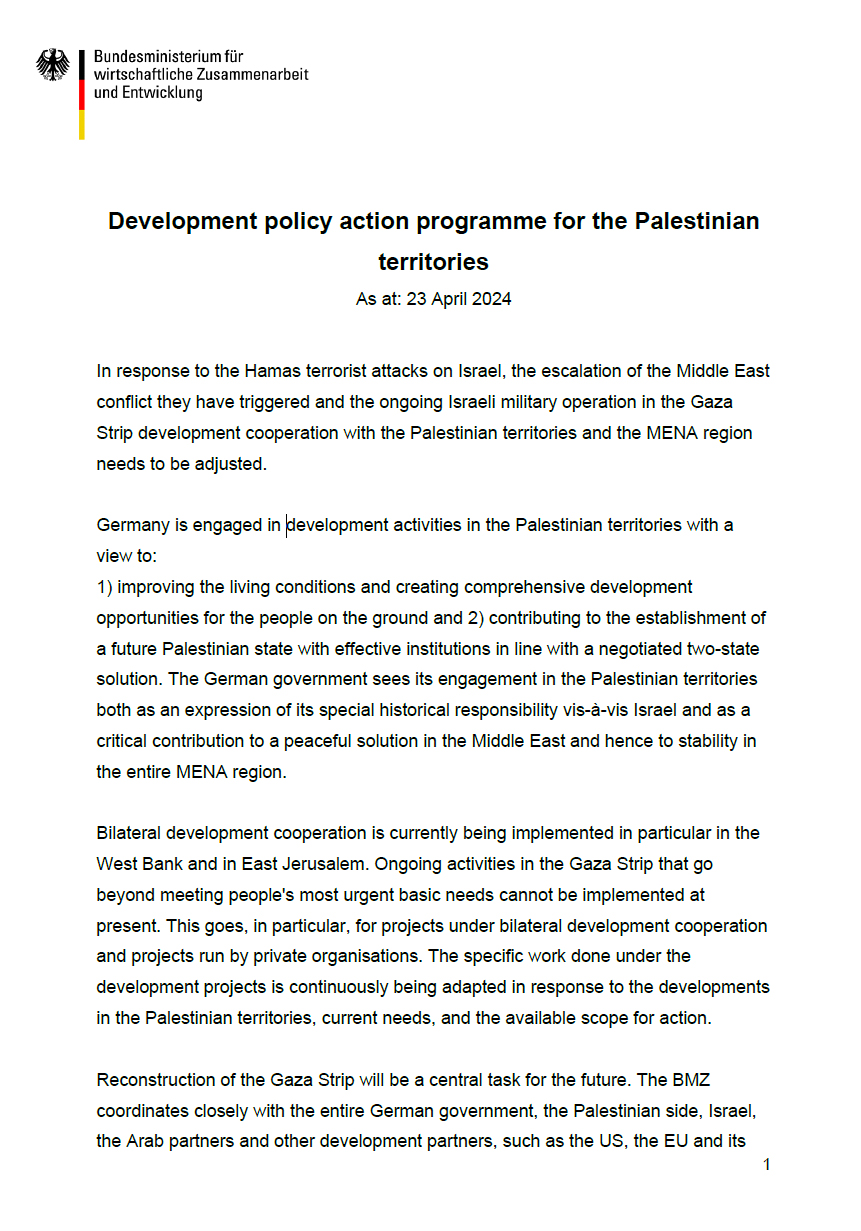Development Minister Schulze agrees initiative for employment and stability in the Palestinian territories
German Development Minister Svenja Schulze and the Palestinian Prime Minister Mohammad Mustafa in Ramallah
Development Minister Schulze said, “The horrific terrorist attack of Hamas and the ongoing war in Gaza have caused unspeakable suffering among Israelis and Palestinians. We are deeply concerned about the disastrous humanitarian situation in the Gaza Strip. At the same time, we must not lose sight of the other parts of the Palestinian territories. The high level of unemployment brought about by the war is causing great hardship among people in the West Bank, too. In a situation that is already extremely difficult, this is adding to the potential for explosive social conflict. That is why Prime Minister Mustafa and I agreed an initiative that will create jobs quickly, thus providing more stability for the West Bank. This is also important for Israel, because Israelis and Palestinians will only be able to live in peace if the other side is able to live in peace, too.”
Yesterday in Ramallah, Development Minister Svenja Schulze met Mohammad Mustafa, the new Prime Minister of the Palestinian Authority, and Labour Minister Enas Dahadha Attari to discuss the launching of the employment and stability initiative.
The terrorist attack on 7 October and the war in the Gaza Strip have also caused an economic and social crisis in the West Bank. One factor in this is the increasing restrictions on movement and access that have been imposed in the West Bank by the Israeli government and are keeping workers from getting to their jobs. Moreover, Israel has revoked the work permits of more than 170,000 Palestinian workers who used to have jobs in Israel or Israeli settlements. The loss of income may plunge thousands of Palestinians into poverty.
The employment and stability initiative is initially intended to support the new Palestinian government's efforts to stabilise the economic situation in the West Bank and East Jerusalem. The initiative is planned to reach as many people as possible, covering a broad range of different levels of training. Activities therefore include short-term cash-for-work employment, for instance in labour-intensive social infrastructure construction (childcare and community centres, for example). Another element is support for Palestinian micro, small and medium enterprises. The initiative may, for instance, cover part of their non-wage labour costs and assist them in improving productivity. In the current crisis, finding jobs or training opportunities is particularly hard for women and young adults. The initiative will therefore include targeted measures to create employment for these groups, including in agriculture and the IT sector.

